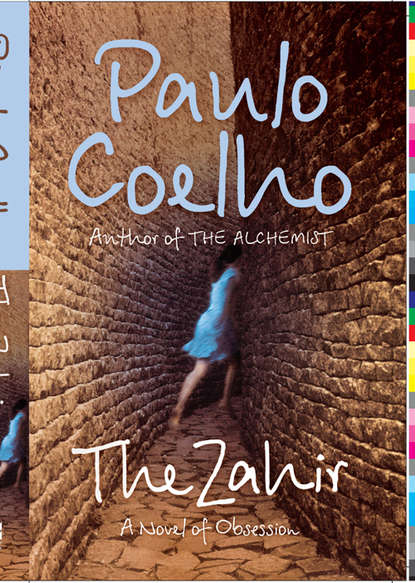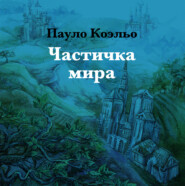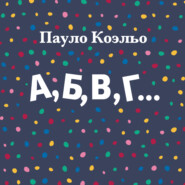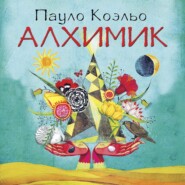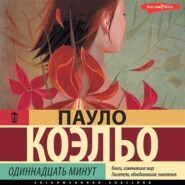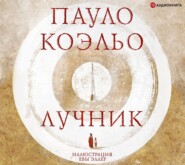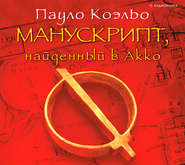По всем вопросам обращайтесь на: info@litportal.ru
(©) 2003-2024.
✖
The Zahir: A Novel of Obsession
Автор
Год написания книги
2018
Настройки чтения
Размер шрифта
Высота строк
Поля
‘When people praise us, (#ulink_ab997bb3-3f03-5f7d-bbb6-cfbf444a12ac) we should always keep a close eye on how we behave.’
‘The critics never praise me.’
‘I mean your readers: you’ve received more letters than ever. You’ll end up believing that you’re better than you are, and allow yourself to slip into a false sense of security, which could be very dangerous.’
‘Ever since my visit to the cathedral in Vitória, I do think I’m better than I thought I was, but that has nothing to do with readers’ letters. Absurd though it may seem, I discovered love.’
‘Great. What I like about the book is the fact that, at no point, do you blame your ex-wife. And you don’t blame yourself either.’
‘I’ve learned not to waste my time doing that.’
‘Good. The universe takes care of correcting our mistakes.’
‘Do you think Esther’s disappearance was some kind of “correction”, then?’
‘I don’t believe in the curative powers of suffering and tragedy; they happen because they’re part of life and shouldn’t be seen as a punishment. Generally speaking, the universe tells us when we’re wrong by taking away what is most important to us: our friends. And that, I think I’m right in saying, is what was happening with you.’
‘I learned something recently: our true friends are those who are with us when the good things happen. They cheer us on and are pleased by our triumphs. False friends only appear at difficult times, with their sad, supportive faces, when, in fact, our suffering is serving to console them for their miserable lives. When things were bad last year, various people I had never even seen before turned up to “console” me. I hate that.’
‘I’ve had the same thing happen to me.’
‘But I’m very grateful that you came into my life, Marie.’
‘Don’t be too grateful too soon, our relationship isn’t strong enough. As a matter of fact, I’ve been thinking of moving to Paris or asking you to come and live in Milan: it wouldn’t make any difference to either of us in terms of work. You always work at home and I always work away. Would you like to change the subject now or shall we continue discussing it as a possibility?’
‘I’d like to change the subject.’
‘Let’s talk about something else then. It took a lot of courage to write that book. What surprises me, though, is that you don’t once mention the young man.’
‘I’m not interested in him.’
‘You must be. Every now and again you must ask yourself: why did she choose him?’
‘I never ask myself that.’
‘You’re lying. I’d certainly like to know why my neighbour didn’t divorce his boring, smiling wife, always busy with the housework, the cooking, the children and the bills. If I ask myself that, you must too.’
‘Are you saying that I hate him because he stole my wife?’
‘No, I want to hear you say that you forgive him.’
‘I can’t do that.’
‘It’s hard I know, but you’ve no option. If you don’t do it, you’ll always be thinking of the pain he caused you and that pain will never pass. I’m not saying you’ve got to like him. I’m not saying you should seek him out. I’m not suggesting you should start thinking of him as an angel. What was his name now? Something Russian wasn’t it?’
‘It doesn’t matter what his name was.’
‘You see? You don’t even want to say his name. Are you superstitious?’
‘Mikhail. There you are, that’s his name.’
‘The energy of hatred won’t get you anywhere; but the energy of forgiveness, which reveals itself through love, will transform your life in a positive way.’
‘Now you’re sounding like some Tibetan sage, spouting stuff that is all very nice in theory, but impossible in practice. Don’t forget, I’ve been hurt before.’
‘Exactly, and you’re still carrying inside you the little boy, the school weakling, who had to hide his tears from his parents. You still bear the marks of the skinny little boy who couldn’t get a girlfriend and who was never any good at sport. You still haven’t managed to heal the scars left by some of the injustices committed against you in your life. But what good does that do?’
‘Who told you about that?’
‘I just know. I can see it in your eyes, and it doesn’t do you any good. All it does is feed a constant desire to feel sorry for yourself, because you were the victim of people stronger than you. Or else it makes you go to the other extreme and disguise yourself as an avenger ready to hit out at the people who hurt you. Isn’t that a waste of time?’
‘It’s just human.’
‘Oh, it is, but it’s not intelligent or reasonable. Show some respect for your time on this earth, and know that God has always forgiven you and always will.’
Looking around at the crowd gathered (#ulink_c9d78ad5-a30d-586b-881e-dbdfa83d3e9b) for my book-signing at a megastore in the Champs-Elysées, I thought: how many of these people will have had the same experience I had with my wife?
Very few. Perhaps one or two. Even so, most of them would identify with what was in my new book.
Writing is one of the most solitary activities in the world. Once every two years, I sit down in front of the computer, gaze out on the unknown sea of my soul, and see a few islands – ideas that have developed and which are ripe to be explored. Then I climb into my boat – called The Word – and set out for the nearest island. On the way, I meet strong currents, winds and storms, but I keep rowing, exhausted, knowing that I have drifted away from my chosen course and that the island I was trying to reach is no longer on my horizon.
I can’t turn back, though, I have to continue somehow or else I’ll be lost in the middle of the ocean; at that point, a series of terrifying scenarios flash through my mind, such as spending the rest of my life talking about past successes, or bitterly criticising new writers, simply because I no longer have the courage to publish new books. Wasn’t my dream to be a writer? Then I must continue creating sentences, paragraphs, chapters, and go on writing until I die, and not allow myself to get caught in such traps as success or failure. Otherwise, what meaning does my life have? Being able to buy an old mill in the south of France and tending my garden? Giving lectures instead, because it’s easier to talk than to write? Withdrawing from the world in a calculated, mysterious way, in order to create a legend that will deprive me of many pleasures?
Shaken by these alarming thoughts, I find a strength and a courage I didn’t know I had: they help me to venture into an unknown part of my soul. I let myself be swept along by the current, and finally anchor my boat at the island I was being carried towards. I spend days and nights describing what I see, wondering why I’m doing this, telling myself that it’s really not worth the pain and the effort, that I don’t need to prove anything to anyone, that I’ve got what I wanted and far more than I ever dreamed of having.
I notice that I go through the same process as I did when writing my first book: I wake up at nine o’clock in the morning, ready to sit down at my computer immediately after breakfast; then I read the newspapers, go for a walk, visit the nearest bar for a chat, come home, look at the computer, discover that I need to make several phone calls, look at the computer again, by which time lunch is ready, and I sit eating and thinking that I really ought to have started writing at eleven o’clock, but now I need a nap, I wake at five in the afternoon, finally turn on the computer, go to check my e-mails, then remember that I’ve destroyed my Internet connection; I could go to a place ten minutes away where I can get online, but couldn’t I, just to free my conscience from these feelings of guilt, couldn’t I at least write for half an hour?
I begin out of a feeling of duty, but suddenly ‘the thing’ takes hold of me and I can’t stop. The maid calls me for supper and I ask her not to interrupt me; an hour later, she calls me again; I’m hungry, but I must write just one more line, one more sentence, one more page. By the time I sit down at the table, the food is cold, I gobble it down and go back to the computer – I am no longer in control of where I place my feet, the island is being revealed to me, I am being propelled along its paths, finding things I have never even thought or dreamed of. I drink a cup of coffee, and another, and at two o’clock in the morning I finally stop writing, because my eyes are tired.
I go to bed, spend another hour making notes of things to use in the next paragraph and which always prove completely useless – they serve only to empty my mind so that sleep can come. I promise myself that the next morning, I’ll start at eleven o’clock prompt. And the following day, the same thing happens – the walk, the conversations, lunch, a nap, the feelings of guilt, then irritation at myself for destroying the Internet connection, until I, at last, make myself sit down and write the first page…
Suddenly, two, three, four, eleven weeks have passed, and I know that I’m near the end; I’m gripped by a feeling of emptiness, the feeling of someone who has set down in words things he should have kept to himself. Now, though, I have to reach the final sentence – and I do.
When I used to read biographies of writers, I always thought they were simply trying to make their profession seem more interesting when they said that ‘the book writes itself, the writer is just the typist’. Now I know that this is absolutely true, no one knows why the current took them to that particular island and not to the one they wanted to reach. The obsessive re-drafting and editing begins, and when I can no longer bear to re-read the same words one more time, I send it to my publisher, where it is edited again, and then published.
And it is a constant source of surprise to me to discover that other people were also in search of that very island and that they find it in my book. One person tells another person about it, the mysterious chain grows, and what the writer thought of as a solitary exercise becomes a bridge, a boat, a means by which souls can travel and communicate.
From then on, I am no longer the man lost in the storm: I find myself through my readers, I understand what I wrote when I see that others understand it too, but never before. On a few rare occasions, like the one that is just about to happen, I manage to look those people in the eye and then I understand that my soul is not alone.
At the appointed time, I start signing books. There is brief eye-to-eye contact and a feeling of solidarity, joy and mutual respect. There are handshakes, a few letters, gifts, comments. Ninety minutes later, I ask for a tenminute rest, no one complains, and my publisher (as has become traditional at my book-signings in France) orders champagne to be served to everyone still in the line (I have tried to get this tradition adopted in other countries, but they always say that French champagne is too expensive and end up serving mineral water instead, but that, too, shows respect for those still waiting).
I return to the table. Two hours later, contrary to what anyone observing the event might think, I am not tired, but full of energy; I could carry on all night. The shop, however, has closed its doors and the queue is dwindling. There are forty people left inside, they become thirty, twenty, eleven, five, four, three, two…and suddenly our eyes meet.
‘I waited until the end. I wanted to be the last because I have a message for you.’
I don’t know what to say. I glance to one side, at the publishers, sales people and booksellers, who are all talking enthusiastically; soon we will go out to eat and drink and share the excitement of the day, and describe some of the strange things that happened while I was signing books.
I have never seen him before, but I know who he is. I take the book from him and write: ‘For Mikhail, with best wishes.’





